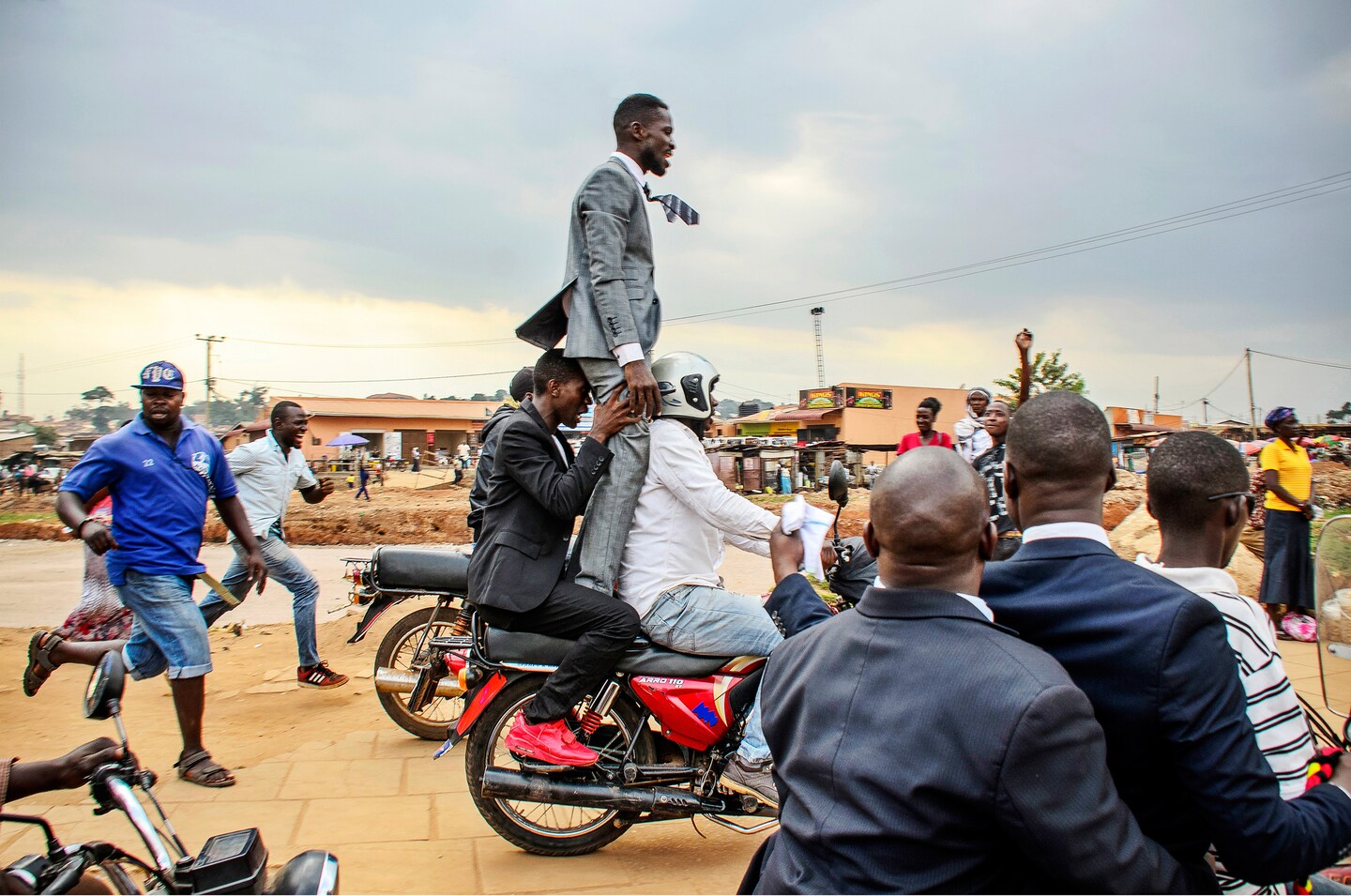‘Bobi Wine’ doc: A winning portrait of a Ugandan also-ran
[ad_1]
Robert Kyagulanyi Ssentamu was born in 1982 in an impoverished section of Kampala, Uganda’s capital. He became famous in his homeland as Bobi Wine, an Afro-reggae singer clearly inspired by Bob Marley. Over time, Wine’s lyrics turned from hedonistic concerns to more socially conscious ones, and in 2017, the performer was elected to Uganda’s parliament. He joined the National Unity Platform, an opposition party, in 2020 and soon became its candidate for president.
That didn’t work out so well. Wine was arrested, beaten and then — still walking with a cane — placed under house arrest. Many of his top aides and musical collaborators were jailed, and an estimated 150 National Unity Platform supporters were killed. (The Ugandan government disputes this, the film notes.) At one point, Wine and his wife, the warm and articulate Barbara “Barbie” Itungo Kyagulanyi, sent their four children to the United States to shield them from possible violence.
Sharp (a Uganda-born Briton) and Bwayo (a Ugandan who shot much of the footage) mostly take a cinéma vérité approach. They got extraordinary access to Wine and his family, following them for five years. In their statement, the directors say they expected to find “human failings” in Bobi and Barbie, but never did.
Just as importantly to the film, the camera crew’s presence clearly didn’t dissuade Ugandan soldiers and police officers from conducting brutal attacks. The documentary’s resulting mix of intimate portrait and raw street warfare proves visceral, dynamic and sometimes upsetting — although Sharp and Bwayo say they excluded the most horrific footage.
Bwayo and the other camera operators couldn’t follow Wine and his colleagues inside the facilities where they were imprisoned and abused. The filmmakers compensate for the gaps in their choppy narrative, but only occasionally, with on-screen titles and a few talking-head interviews. They also splash atop the images Wine’s urgent but often artless lyrics, which address everything from the high cost of electricity to the need to be “alert” to the coronavirus threat. If Wine’s songs are more lively than distinctive, they easily upstage Dan Jones’s electronic score.
Sharp and Bwayo supplement their own footage with clips from international news programs and include bits of an interview with Museveni. The latter obligingly plays the role of villain by blaming antagonism to his rule on “Western elements,” “foreigners” and “homosexuals.” The tight-lipped, blame-spreading despot could hardly pose a greater contrast to the inclusive, empathetic Wine.
But the film doesn’t attempt to determine whether Museveni rules entirely by fear, or whether some people actually like him. Voters have been known, after all, to sincerely support thugs, liars and bullies. And sometimes a fresh alternative, even one as energetic and altruistic as Bobi Wine, seems a riskier choice than the devil everybody knows.
PG-13. At the Angelika Pop-Up at Union Market. Contains strong violence, bloody images and mature thematic elements. In heavily accented English with occasional subtitles. 118 minutes. On Aug. 12, the theater will host a Q&A with Bobi Wine following the 7 p.m. show.
